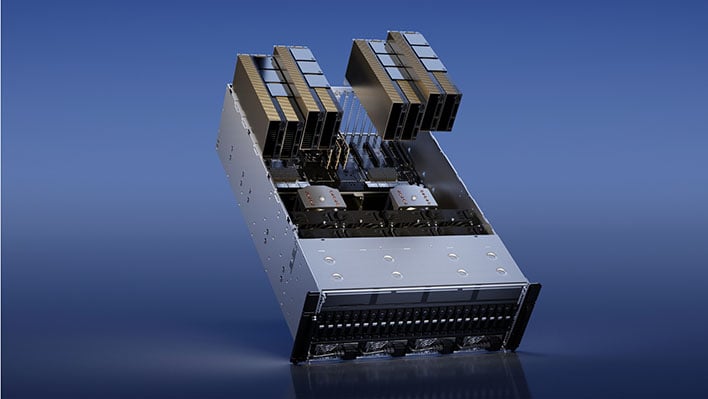US Walks Back Stern Warning To NVIDIA Over China-Bound AI Chips
It appears as though NVIDIA's biggest competition is not any other GPU manufacturer, but itself. Realizing this, the United States Government has issued stern warnings in the midst of the restrictions of ultra-powerful AI data center GPUs. Not wishing China to get the most advanced hardware for fear of being outpaced, NVIDIA has fallen squarely in the middle of this national security debacle.

Even the gamer-centric GeForce RTX 4090 was affected by these bans due to its VRAM prowess. Reports surfaced of a cut-down GeForce RTX 4090D for the Chinese market, one minor example of changes potentially made by NVIDIA. The much more powerful data center GPUs are what worry U.S officials the most, however, which is why NVIDIA had received a stern warning from U.S Commerce Secretary Gina Raimondo.

In a recent interview, Raimondo stated that NVIDIA "can, will and should sell AI chips to China because most AI chips will be for commercial applications." She clarified that they want to avoid China receiving the most advanced AI chips that could be used for more serious applications, which would affect national security.
Officials certainly will keep a keen eye on NVIDIA to make sure they do not redesign chips in such a way to bypass restrictions for the higher-end GPUs. NVIDIA therefore must tow a careful line between its sales and not upsetting the United States Government, who has the power to control its GPU output if rules are not followed.

